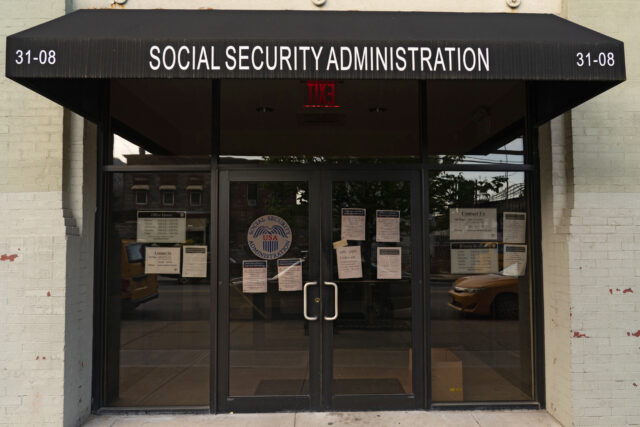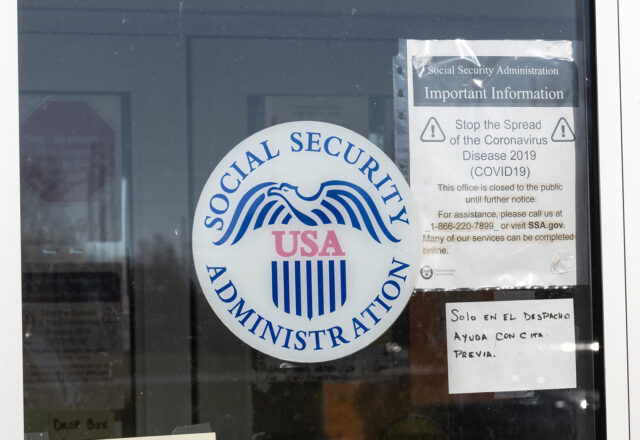
During COVID, Applicants Adjusted to Social Security Office Closings
When COVID swept in, the U.S. Social Security Administration responded quickly and closed its field offices on March 27, 2020. They remained closed for two full years, largely eliminating the option to apply in-person for federal disability benefits.
So what did people who needed to apply do instead, and how did the closings affect the flow of applications? Were some people with disabilities deterred from applying at all?
New research answers these questions by analyzing Social Security’s data for online, telephone and in-person applications to assess the impact of this unprecedented disruption in the agency’s in-person services.
The researchers estimate that the suspension of in-person applications caused a 6 percent decline in all disability applications submitted to the agency over the two-year period.
But in a comparison of similar U.S. counties without field offices, the elimination of the in-person option caused a 48 percent jump in applications submitted over the phone in the counties that had field offices that closed. In counties that didn’t have field offices, the increase in phone applications was also substantial – 27 percent. In many cases, the applicants in these counties had been near enough to an office in another county to drive there and chose the phone instead during the COVID closures.
The total number of disability applications decreased for a variety of reasons. The isolation and economic hardship during the pandemic no doubt contributed to this decline. But the researchers found that nearly half of the decline was tied specifically to the closings, indicating “that not everyone who wanted to apply in-person was able to using other modes.”
In contrast to phone applications, online applications barely increased after the closings. One reason may be that people who tend to apply in person don’t fit the profile of the typical online applicants. Online applicants have more education and earn somewhat more than people who apply in person. The in-person applicants historically have been less likely to speak English.
There are obvious advantages to face-to-face contact with a Social Security representative that would be helpful in submitting an application. The researchers noted that they can make sure the paperwork is filled out properly or observe physical disabilities and document them in the application. It can be easier to overcome language barriers in person too. A telephone application also has some of these same advantages and may explain the larger shift to phone rather than online applications.
Despite the benefits of applying in person, however, the researchers found little evidence of a disproportionate impact of the closings on individual groups, such as people with less education, older applicants and applicants who don’t speak English.
In fact, the share of applicants who were approved initially without having to appeal increased slightly during the pandemic. Yes, the office closings were a deterrent. But a higher approval rate “indicate[s] that the suspension disproportionately discouraged applicants who were less likely to be eligible.”
To read this study by Monica Farid, Michael Anderson, Gina Freeman and Christopher Earles, see “The Effects of Suspending In-person Services at Social Security Administration Field Offices on Disability Applications and Allowance.”
The research reported herein was performed pursuant to a grant from the U.S. Social Security Administration (SSA) funded as part of the Retirement and Disability Research Consortium. The opinions and conclusions expressed are solely those of the authors and do not represent the opinions or policy of SSA or any agency of the Federal Government. Neither the United States Government nor any agency thereof, nor any of their employees, makes any warranty, express or implied, or assumes any legal liability or responsibility for the accuracy, completeness, or usefulness of the contents of this report. Reference herein to any specific commercial product, process or service by trade name, trademark, manufacturer, or otherwise does not necessarily constitute or imply endorsement, recommendation or favoring by the United States Government or any agency thereof.






